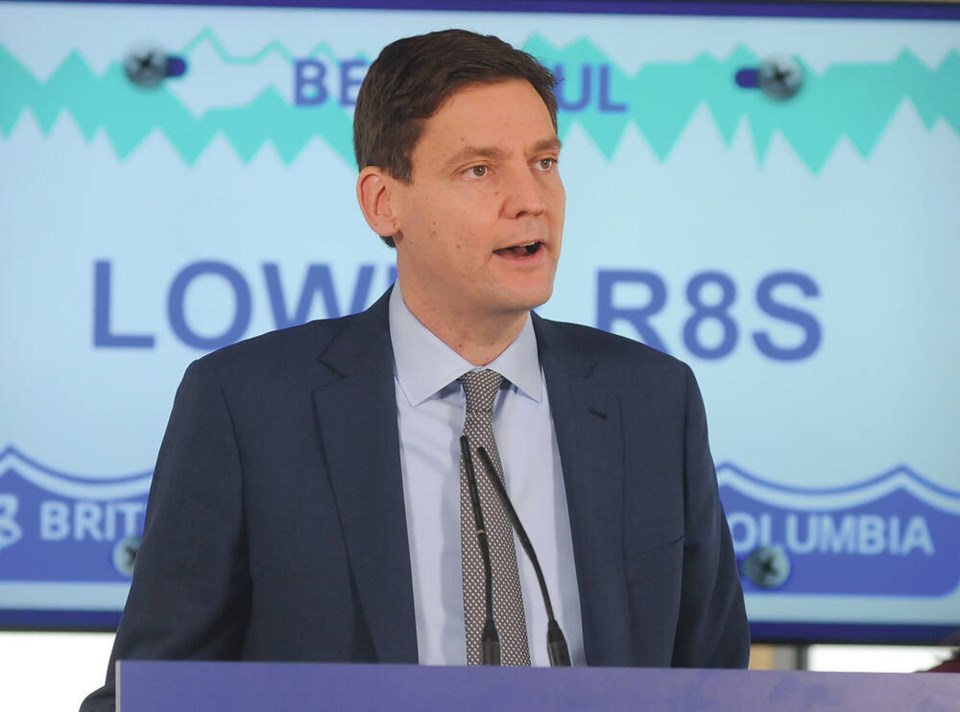B.C. Premier David Eby was in North Vancouver Monday morning at ICBC headquarters to announce ICBC will apply to freeze vehicle insurance rates for the next two years.
ICBC will apply to the B.C. Utilities Commission for a freeze on basic insurance rates, the premier said, adding that would mean five years without an increase in basic ICBC rates.
Eby didn’t say why he was making the announcement ahead of the utilities commission decision or whether he would move to overrule that decision if the rate freeze isn’t granted.
Car insurance key to affordability: premier
But he stressed making life ”more affordable” is a key priority of government.
The high cost of living in B.C. is an issue being talked about around the province, Eby said.
Having a vehicle is “incredibly important for many, many people across our province,” he said. “And the affordability of car insurance is a key part of owning a car.”
A rate freeze will help keep car insurance affordable “at a time when people are facing significant cost pressures,” said Eby.
Eby took time at Monday’s announcement to defend ICBC’s switch to no-fault insurance, a move which he shepherded in his previous role as B.C.’s attorney general.
Eby defends no-fault insurance
Despite questions that some people have raised about whether the amounts being paid to people involved in serious crashes are adequate, Eby said under the new system, people are receiving payments faster, rather than waiting years for legal cases to grind through the courts.
“And then at the end of it, the lawyer would take a third of their award that was supposed to be money for them to get better,” he said.
Eby also took a swipe at the Liberals’ handling of ICBC, which he once famously referred to as a financial “dumpster fire.”
“The government was using ICBC as an ATM, pulling money out of the corporation to pretend that budgets were balanced,” while secretly recommending that assets be sold off, he said.
Previous government approach almost bankrupted ICBC, says Eby
“For many years government drew down these reserves to crisis levels,” he said.
That system “almost bankrupted ICBC,” he said, pointing to a year in which the Crown corporation lost almost $1 billion.
Eby said reserves are being built up again now.
But he also fielded questions on how the Crown corporation could afford to freeze rates when income is down and ICBC is projected to lose $290 million this year.
ICBC president Nicholas Jimenez said most of the projected loses are from “significant hits” to ICBC’s investment portfolio, but added “the core business is sound.”
“The bottom line is ICBC needs to be self-supporting,” Eby said.
No update on ICBC head office move off North Shore
In response to questions, Eby said there is no update on the Crown corporation’s plan to vacate the large North Vancouver building that serves as its headquarters. After occupying the waterfront building for more than 40 years, ICBC told its 1,500 head office employees in September that the Crown corporation plans to vacate its 300,000-square-foot six-storey office. The move isn’t expected until 2025 at the earliest.
The key unanswered question so far is what will happen to the prime piece of real estate once ICBC leaves.
Five years ago, a leaked report prepared by ICBC at the direction of the previous Liberal government showed the Crown corporation had developed a business case for moving and selling the property at 151 West Esplanade, which has been in use since 1980.
Among the challenges noted in the report were “significant expenditures for maintenance and upgrades will be required over the next 10 to 20 years. This expenditure is estimated to be at approximately $184 million, with the majority of the costs required during the first 10 years of this period,” stated the business case, obtained by the News at the time.
Spending that kind of money on a building that is rarely more than half occupied doesn’t make sense, ICBC concluded.
The ICBC property was most recently assessed at $103.8 million – almost all of that in land value.
Eby said Monday there are “a number of bridges [that] have to be crossed before ICBC headquarters is sold, including determining where ICBC will be landing. Also, we have First Nations engagement and consultations as well as engagements with folks on the North Shore to make sure that this community that has served ICBC for so long benefits from whatever ends up on this site.”




